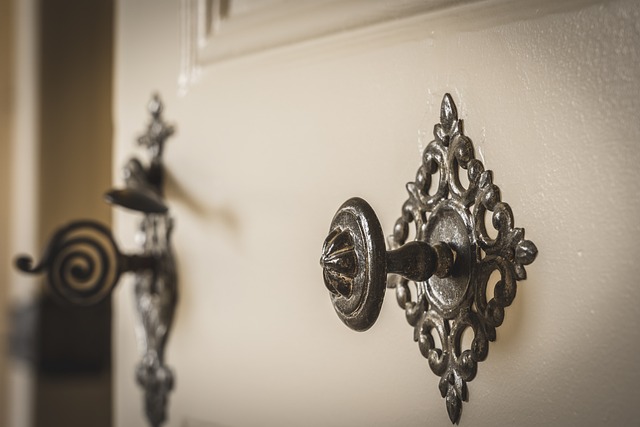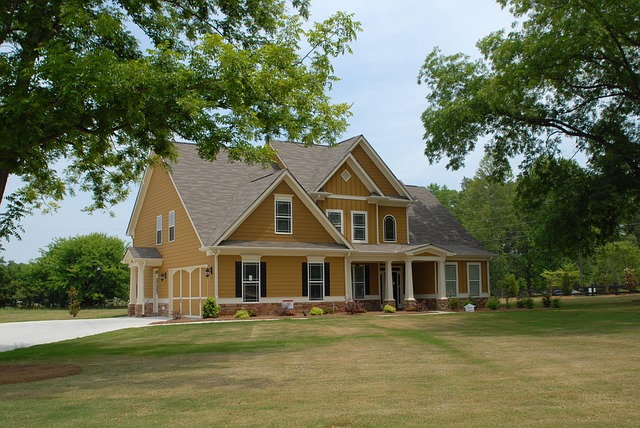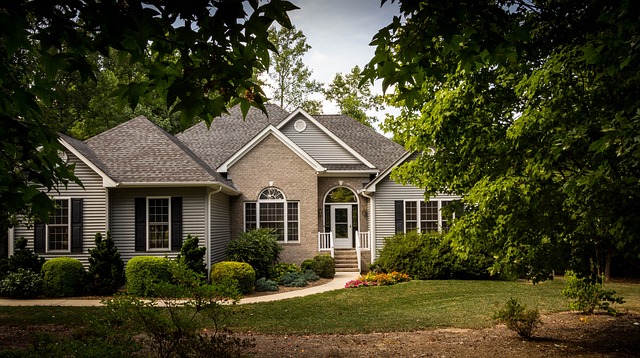Singapore's Executive Condos (ECs) are a unique blend of public and private housing, designed for eligible Singaporean couples who don't yet qualify for HDB flats. Over five years, ECs transition into standard resale flats, with different investment implications post-transition due to the end of eligibility for the CPF Housing Grant and the initiation of free market trading after the minimum occupation period. These properties offer a mix of affordability and premium condominium amenities, making them attractive to both homeowners and investors. The first five years are critical as they align with standard lease terms, impacting future marketability and price. Post-five years, ECs can become private condominiums if certain conditions are met, providing a robust resale market with potential for capital appreciation influenced by factors like location, unit type, and condition. For homeowners, the five-year mark also signifies a shift in the Lease Buyback (LB) scheme's eligibility, affecting how much equity can be released from the flat. Refinancing options become available, allowing for potentially better mortgage rates and terms post-occupation period. Maintenance and management are key to preserving an EC's value, with a focus on regular upkeep, financial planning, and active involvement in strata management decisions to ensure the living environment remains desirable. For those looking at buying or investing in an Executive Condo Sg, understanding this lifecycle and the associated market dynamics is essential for making informed decisions that align with long-term financial goals.
navigating the lifecycle of an Executive Condominium (EC) in Singapore reveals a dynamic market with unique considerations for owners post-five-year mark. This article delves into the resale potential, market trends, and financial options available to EC residents as they approach this significant milestone. We explore how the lease buyback scheme changes, the importance of maintenance, and refinancing strategies to optimize your EC’s value in Singapore. Join us as we examine the pivotal fifth year and beyond for Executive Condos Sg.
- Understanding the Lifecycle of an Executive Condominium (EC) in Singapore: A 5-Year Perspective
- The First Five Years: Resale Potential and Market Trends for ECs in SG
- Lease Buyback Scheme Eligibility: What Changes After 5 Years for EC Owners?
- Financing and Refinancing an Executive Condo Post-Five-Year Mark
- Maintenance and Management: Keeping Your EC in Prime Condition Beyond the Fifth Year
Understanding the Lifecycle of an Executive Condominium (EC) in Singapore: A 5-Year Perspective
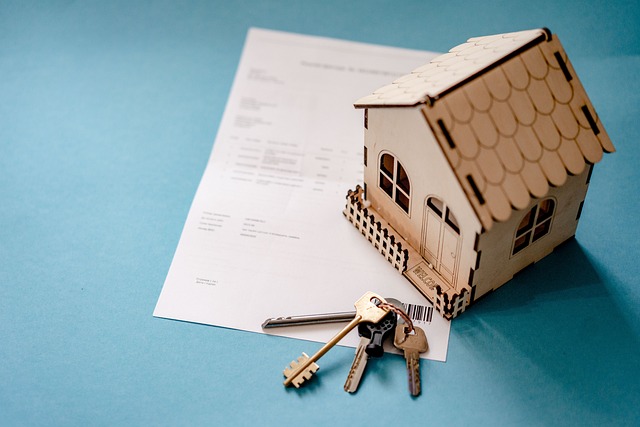
In Singapore, an Executive Condominium (EC) is a hybrid of a public and a private residential flat, designed to offer affordable housing options for younger couples who may not immediately qualify for a HDB flat due to income restrictions. Over a span of five years, an EC undergoes significant transitions that reflect its status within the property landscape of Singapore. Initially, ECs are available for purchase by eligible Singaporean families on the open market. After five years, these units transition from being eligible for the CPF Housing Grant to becoming ordinary resale flats with no grant eligibility. This shift typically occurs once 75% of the EC’s units have been resold in the open market. During this period, EC residents enjoy the benefits of condominium living such as condo facilities and a private enclave setting, while also having the potential for capital appreciation due to their location and amenities.
Furthermore, the five-year mark is crucial as it signifies the end of the minimum occupation period set by the Singapore government. Upon reaching this milestone, units within an EC can be sold on the open market without any restrictions. This transition often leads to a reevaluation of property values and can influence the investment appeal of ECs. Owners may decide to sell their units if they have met their housing needs or if they wish to capitalize on the appreciation of their property’s value. The lifecycle of an EC in Singapore, therefore, is a dynamic process influenced by policy changes, market trends, and the evolving needs of its residents. Understanding this lifecycle is essential for potential buyers and investors who are considering an Executive Condominium as a housing or investment option in Sg.
The First Five Years: Resale Potential and Market Trends for ECs in SG

In the dynamic real estate landscape of Singapore, Executive Condominiums (ECs) have carved out a unique niche. The first five years of an EC’s existence can be pivotal in terms of its resale potential and market trends. Typically, owners of ECs can sell their units anytime after the satisfaction of the statutory occupancy period, which is at least 5 years from the date of taking possession of the unit. This period is crucial as it aligns with the standard lease term in Singapore, influencing the property’s marketability and resale value. During this tenure, ECs are subject to a transition from being a fresh development to potentially qualifying as a private condominium after attaining 10 years old, should the criteria be met.
Market trends for Executive Condo SG reveal that these properties offer an attractive proposition for upgraders and first-time homeowners due to their balanced price points and comprehensive facilities. The resale market for ECs has shown robustness, with savvy investors and homeowners taking note of the potential capital appreciation over time. Factors such as location, unit type, and the overall condition of the property play significant roles in determining the resale value of an EC. Prospective buyers often prioritize well-connected areas with proximity to public transport, shopping centers, and schools when considering a resale purchase. As such, understanding the trends and evolving preferences of the market is essential for both sellers looking to maximize their returns and buyers aiming to secure a property that suits their long-term needs.
Lease Buyback Scheme Eligibility: What Changes After 5 Years for EC Owners?

Upon reaching the five-year mark post-purchase, Executive Condominium (EC) owners in Singapore face significant changes regarding the Lease Buyback (LB) Scheme. Initiated by the Housing & Development Board (HDB), the LB scheme enables older homeowners to unlock equity from their flats and decide how they wish to use this financial freedom. For the initial 4 years of occupancy, EC owners are eligible for the LB scheme, where they can opt to sell a portion of their flat’s lease back to the HDB. This arrangement is designed to provide homeowners with cash while allowing them to continue residing in their homes for as long as they need.
However, after five years, the terms of participation in the LB scheme change. EC owners are no longer automatically eligible and must meet certain criteria to opt into the scheme at this juncture. The HDB assesses each case based on the owner’s age, flat type, and lease length, among other factors. If the owner meets the qualifying conditions post-five years, they can choose to enter into a new LB agreement for the remaining lease. This could mean that the owner may have to relinquish more lease back to the HDB compared to the initial buyback to ensure the scheme remains financially viable and sustainable. Additionally, the amount of cash payout may differ based on the updated valuation of the flat and prevailing market conditions. EC owners should be well-versed with these changes to make informed decisions about their housing plans post-five years. It’s advisable for owners to consult the HDB or a legal expert specializing in property matters in Sg to understand fully how these changes affect their specific situation.
Financing and Refinancing an Executive Condo Post-Five-Year Mark
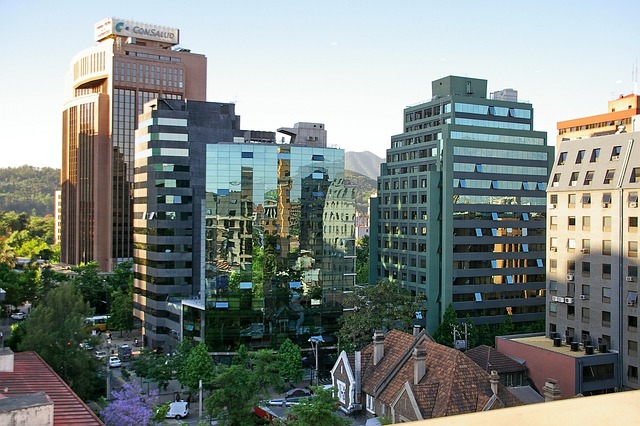
In Singapore’s dynamic property market, an Executive Condominium (EC) serves as a unique housing option for both singles and families. Post the five-year mark from purchase, EC residents may find themselves considering financial decisions that align with their evolving needs. Financing options for an EC in Singapore differ from private condominiums after this period, as ECs revert to being regular public housing upon satisfying certain criteria, such as the minimum occupation period. Owners looking to refinance their EC loans after five years should explore various banks and financial institutions offering competitive rates to secure the best possible terms. Refinancing can provide homeowners with financial flexibility, allowing them to manage their mortgage repayments more effectively or even unlock equity for investments or other financial goals. It’s advisable for EC owners to assess their financial situation and market conditions before making a decision, as refinancing could potentially lead to savings over the remaining tenure of the loan.
The refinancing window post-five-year mark is a strategic opportunity for EC residents to optimize their finances. As the property ages, its valuation may change, which can influence the refinancing options available. Homeowners should also be aware that their own financial standing, including income and credit score, will play a significant role in the refinancing process. Additionally, the interest rate environment at the time of refinancing can greatly affect the outcome. Prudent homeowners prepare for this by maintaining a stable financial profile and staying informed about market trends. Engaging with experienced mortgage brokers or financial advisors is crucial, as they can provide tailored advice to navigate the complexities of refinancing an EC in Singapore after its five-year anniversary. This proactive approach ensures that EC residents can make well-informed decisions that align with their long-term financial objectives.
Maintenance and Management: Keeping Your EC in Prime Condition Beyond the Fifth Year

For property owners, particularly those residing in an Executive Condo (EC) in Singapore, maintaining and managing the property post-fifth year is crucial for preserving its value and ensuring a comfortable living environment. Regular maintenance schedules are indispensable; they should encompass routine checks of electrical systems, plumbing, and structural integrity to prevent minor issues from escalating into costly repairs. Engaging with professional cleaning services for common areas and facilities not only upholds the property’s aesthetic appeal but also ensures their functionality for all residents.
Moreover, prudent financial planning is essential for the long-term management of an EC. This includes setting aside funds for maintenance reserves as stipulated by the Singaporean authorities, to cover unforeseen expenses. Strata title management corporations play a vital role in overseeing these finances and coordinating maintenance tasks. Owners should actively participate in decision-making processes within the management corporation to ensure that collective interests are upheld and that the EC continues to thrive beyond its fifth anniversary. By adhering to these practices, owners can keep their Executive Condo Sg in prime condition, fostering a harmonious and well-maintained living environment for years to come.
After a comprehensive examination of the lifecycle of an Executive Condominium (EC) in Singapore over a five-year span, it’s clear that these housing units offer a unique blend of benefits for young families. The first half-decade sees these properties often appreciate in value, making them attractive resale options within the market. Post-five years, EC owners have new considerations, such as eligibility for the Lease Buyback Scheme, which can provide financial flexibility for those looking to release equity from their homes. Homeowners must also navigate financing and refinancing opportunities tailored to ECs to optimize their mortgage arrangements.
Maintaining an EC beyond its fifth anniversary requires diligent upkeep and management to preserve its value and livability. Owners should be proactive in engaging with maintenance services and understanding the responsibilities that come with owning an EC in Singapore. As the EC landscape evolves, staying informed about market trends and government policies remains crucial for EC owners to make well-informed decisions throughout the lifecycle of their homes.
In conclusion, the journey of an Executive Condo in Singapore beyond its fifth year is multifaceted, encompassing financial planning, property management, and adapting to changing regulations. For those who call an EC home, this period can be both rewarding and challenging, but with careful consideration and strategic planning, it can also be a time of continued comfort and investment growth.

